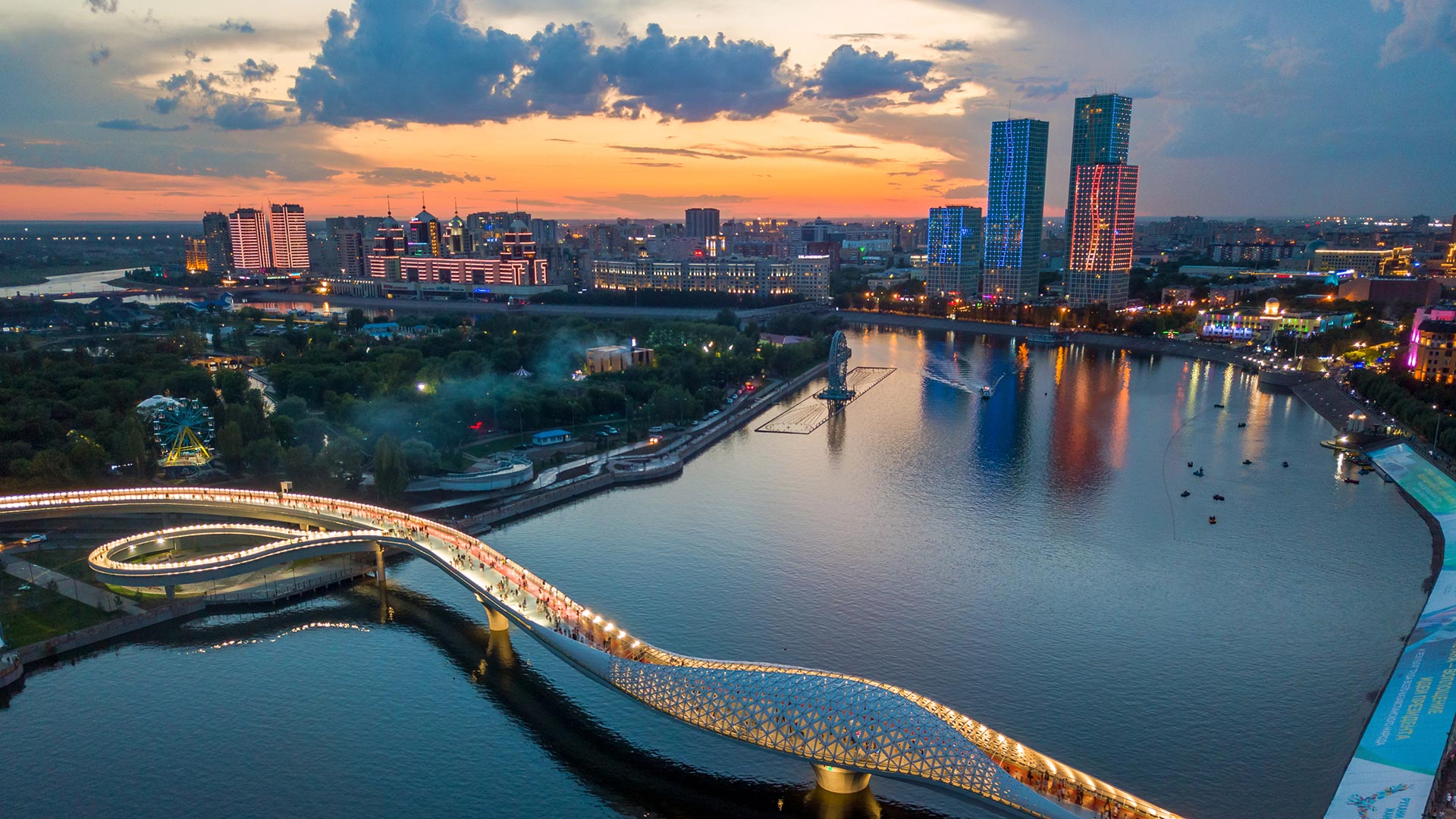
Connecting Continents
Kazakhstan’s Pivotal Role in Driving International Cooperation
Discover the Central Asian nation’s inclusive approach to shared prosperity at the Astana International Forum 2024.
In an era marked by geopolitical uncertainties, climate change, and economic instability, international cooperation has never been more crucial, and middle powers are stepping up to serve functions once reserved for the world’s superpowers. In this pivotal landscape, Kazakhstan plays a unique role bridging East and West, facilitating dialogue and exchanges globally.
Kazakhstan is poised to lead a conversation addressing these global complexities at the Astana International Forum 2024, which will welcome over 5,000 delegates from more than 50 countries from June 13 to 14, 2024, in the Kazakh capital. Under the theme ‘Building a Better World Together,’ the event will focus on foreign policy, sustainability, energy, and finance, as it seeks to inspire cross-border dialogue and collaborative solutions to some of the most pressing issues facing our world today.

The Middle Power
Kazakhstan’s strategic position in the heart of Eurasia, bordered by Russia to the north, China to the east, Kyrgyzstan, Uzbekistan, and Turkmenistan to the south, and the Caspian Sea to the west, places it at a crossroads of major geopolitical interests and transcontinental trade dynamics. The country’s multi-vector approach prioritizes cooperation with its international partners, including its neighbors and beyond.
By leveraging our geographic and strategic position, Kazakhstan is enhancing its role in global trade, strengthening its economic relations, and fostering sustainable growth both domestically and across the region.
Roman Vassilenko, Deputy Foreign Minister of Kazakhstan
The nation’s active participation in major trade corridors, including the Belt and Road Initiative (BRI) and the Trans-Caspian International Transport Route (TITR), also known as the Middle Corridor, showcases its role in promoting trade and fostering diplomatic relationships between East and West. In 2023, the volume of goods transported via the Middle Corridor surged by 65% to reach 2.76 million tons, estimated to reach an annual throughput capacity of 10 million tons by 2027.
The nation has also worked to solidify its international reach through initiatives such as the Central Asia Plus Framework, which aims to strengthen regional collaboration. “The narrative around Central Asia is shifting towards a more cooperative region,” says Vassilenko, adding that common challenges, such as fighting global warming and ensuring sustainable economic growth, should play a unifying role.
Kazakhstan’s proactive engagement in global trade and economic forums highlights its commitment to diverse partnerships, paving the way for a more resilient economic future by developing non-oil industries and funding infrastructure development and digital innovation. The country is poised to further assert its international influence this year by chairing several global platforms, including the Shanghai Cooperation Organization, Conference on Interaction and Confidence-Building Measures in Asia, Organization of Turkic States, Islamic Food Security Organization, and the International Fund for Saving the Aral Sea.
Kazakhstan also plans to host the 5th World Nomad Games in September 2024, which will attract 3,000 athletes from 100 countries for the revival and preservation of the culture of nomadic civilization and the rapprochement of nomadic nations.
The Advocate
As a champion of the ‘Great Gain for All’ principle, Kazakhstan has taken a unified approach to improve political, social, and environmental challenges today and for future generations. “It reflects our belief that cooperation, rather than competition, should be the driving force in global relations,” mentions Vassilenko.
Aligning its actions with the United Nations’ overarching commitment to global security and stability, Kazakhstan has been actively supporting UN peacekeeping efforts, deploying as many as 430 peacekeepers to participate in various missions worldwide. Since independence, Kazakhstan has allocated $600 million for humanitarian and development assistance, and the country has also provided a neutral platform for facilitating peaceful resolutions to regional conflicts, including the Astana Process on Syria.
By enhancing regional connectivity, Kazakhstan is fostering closer economic relations with both its European and Asian neighbors. This has led to increased trade, investment opportunities, and a more diverse economic portfolio, reducing over-reliance on any single economic partner or sector. Building on this momentum, Kazakhstan aims to further contribute to regional and global development, creating bridges between continents, cultures, and nations.

The Changemaker
At the UN General Assembly in 2023, President Kassym-Jomart Tokayev, among others, pressed for a more inclusive and representative UN Security Council. “As a key player in Central Asia, we bring a unique perspective to the international stage,” says Vassilenko. “This diplomatic balancing would be valuable in the UN Security Council, as it would offer a more holistic view on issues that are often polarized among the current permanent members.”
In addition to its diplomatic endeavors, Kazakhstan is playing a crucial role in supporting the stability of global energy markets. As well as producing 43% of the world’s uranium needed to fuel nuclear power plants, Kazakhstan also has the capacity to produce more than half of the 34 critical raw materials of high importance to the EU. By investing in energy infrastructure and pursuing policies that support energy export, Kazakhstan is positioning itself as a long-term partner for the EU in the energy domain.
Through its strategic initiatives and diplomatic engagements, Kazakhstan continues to shape the course for global governance to reflect the need for peace and stability in the multipolar reality of the 21st century.

